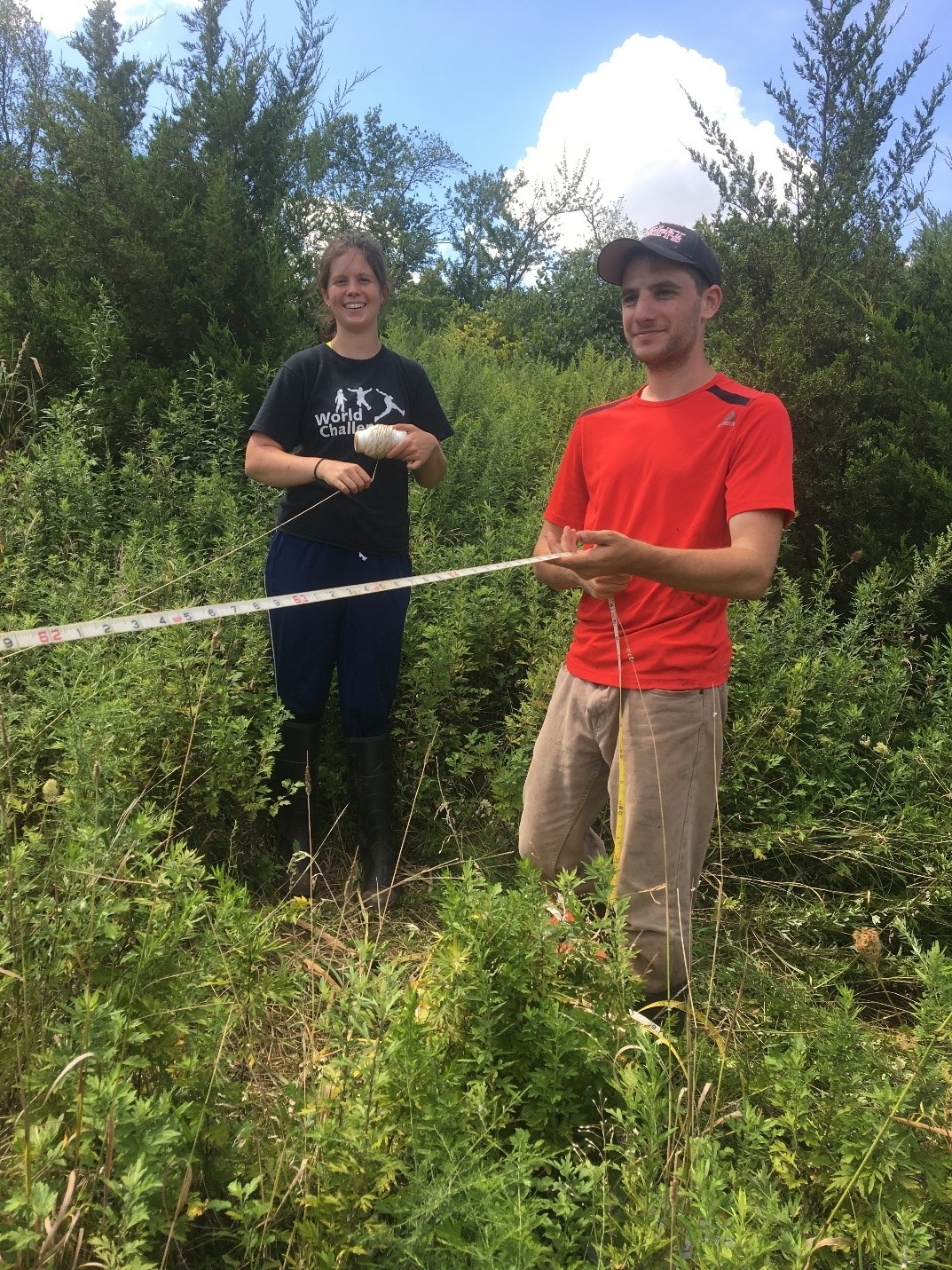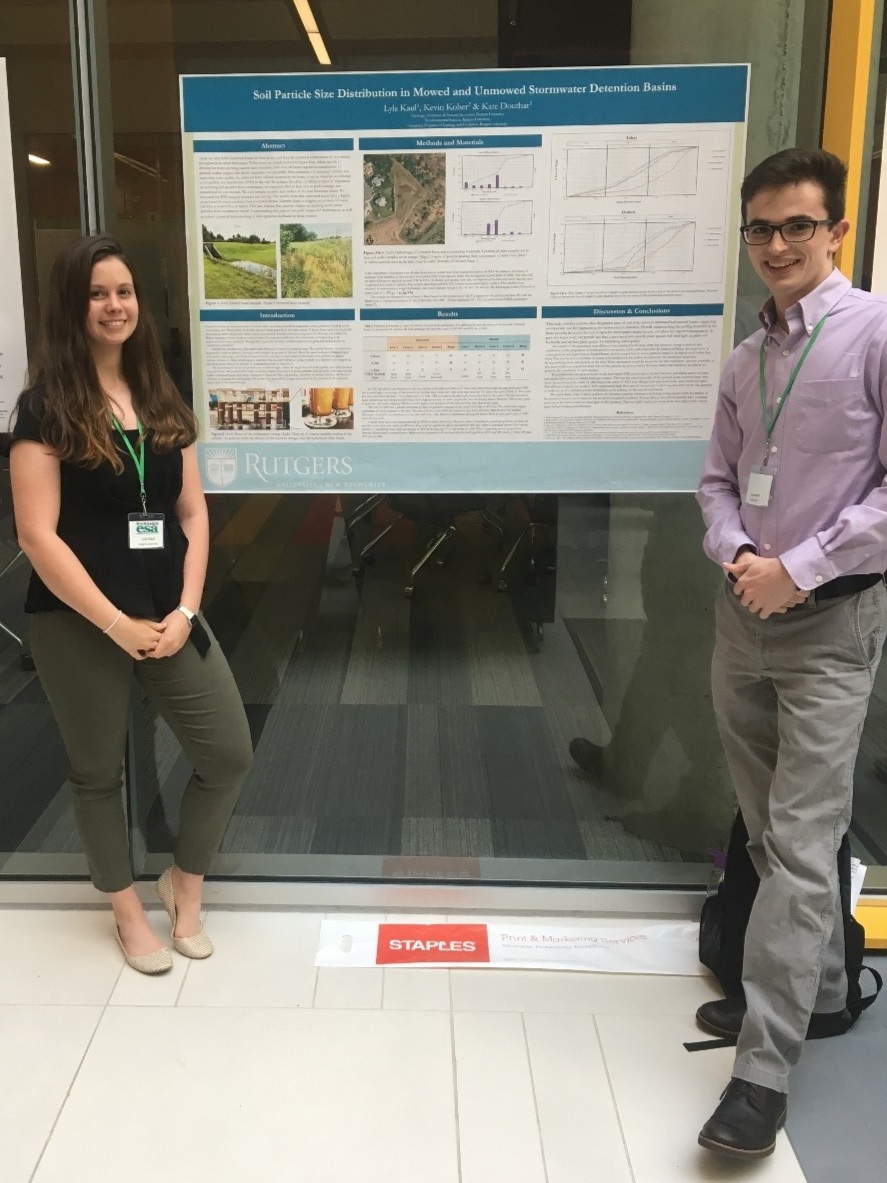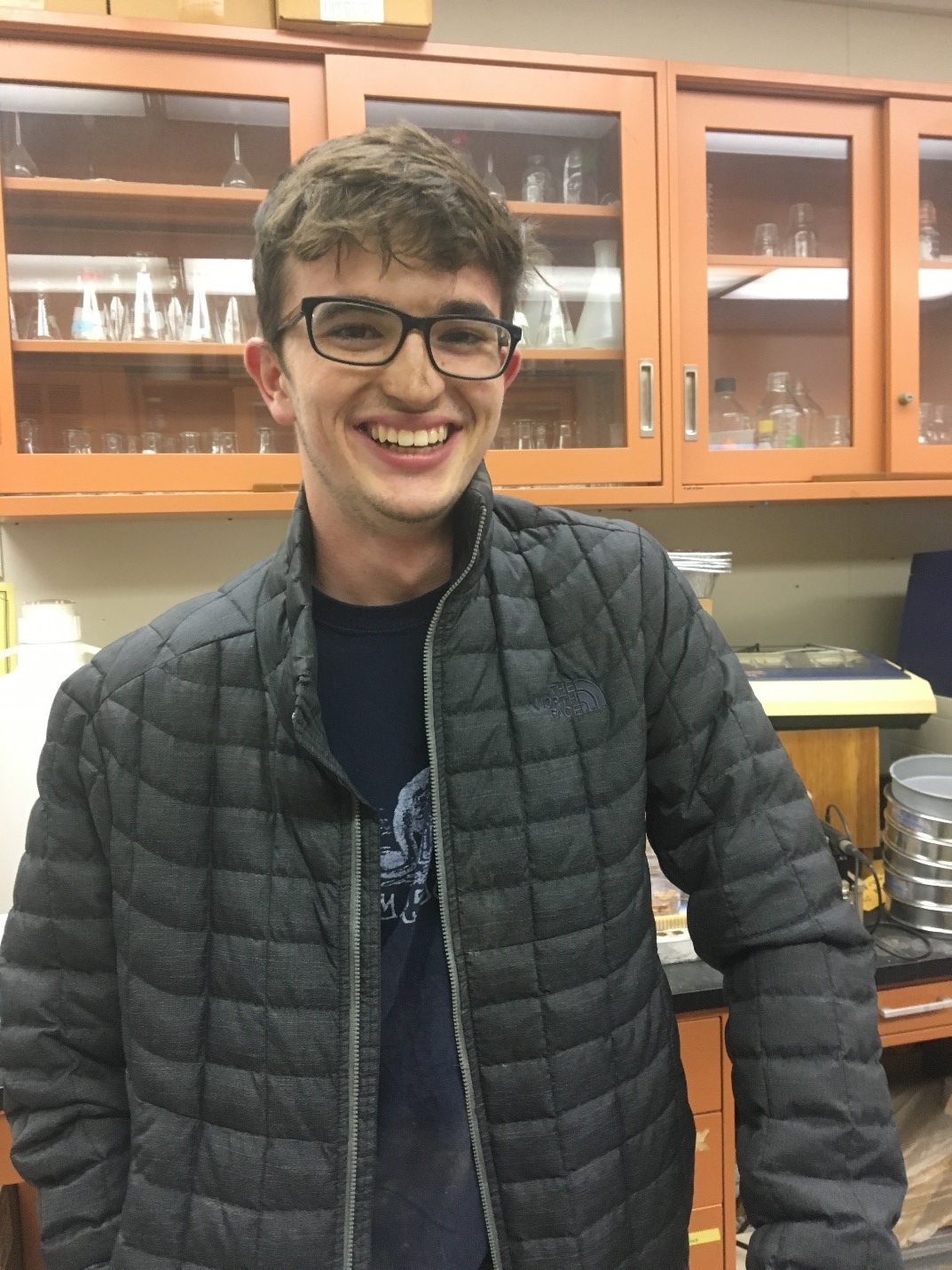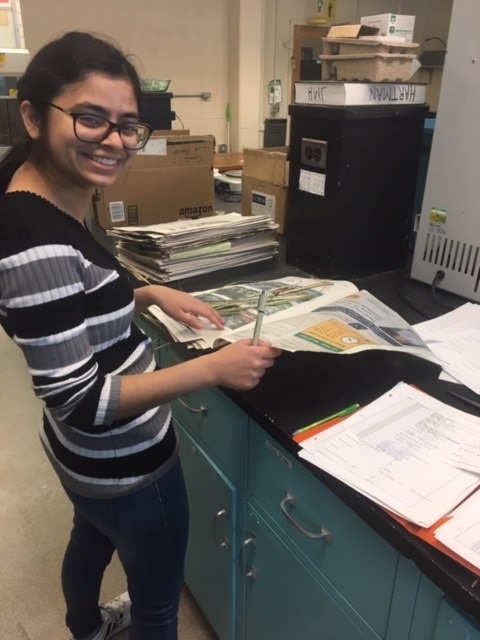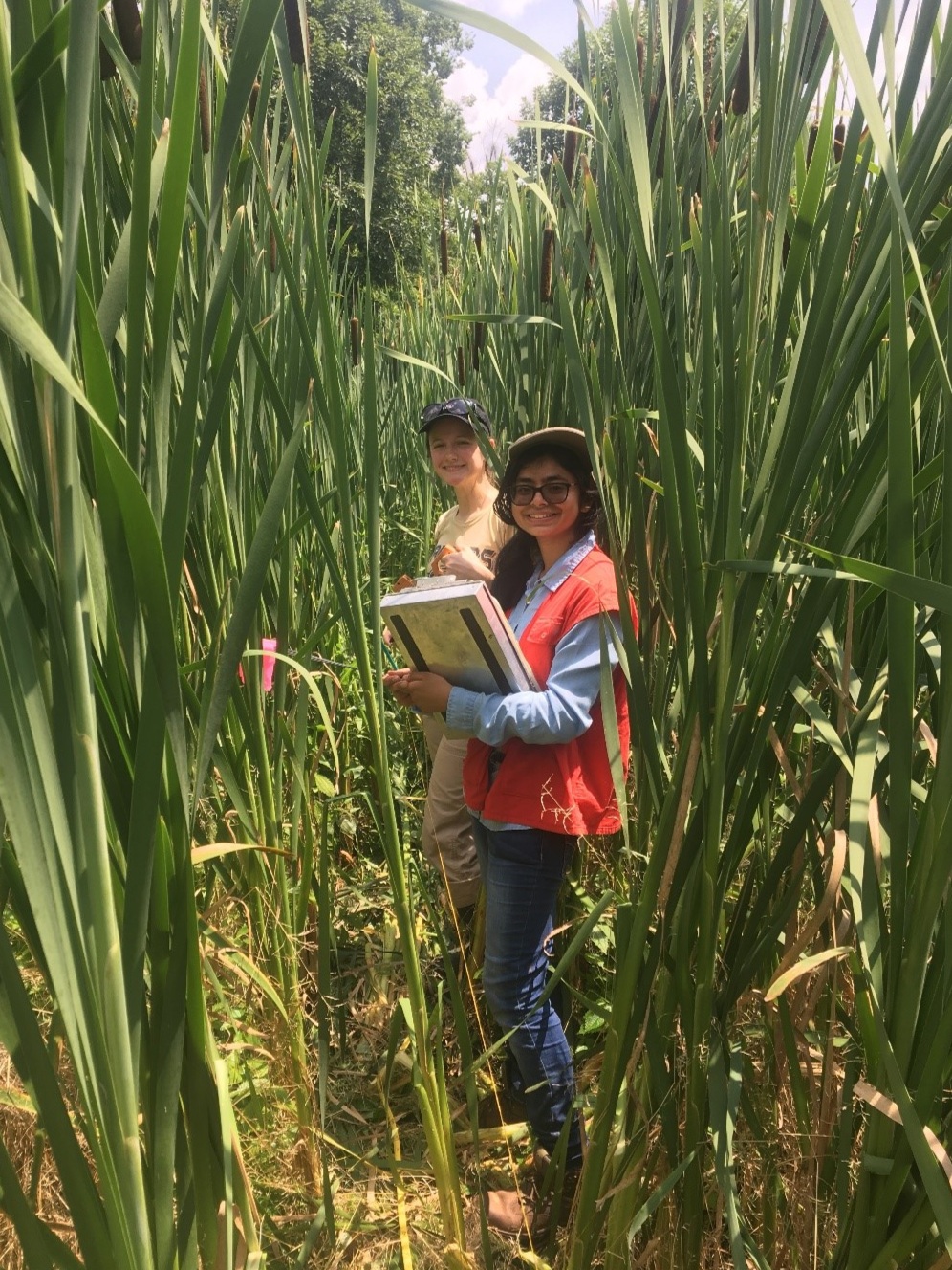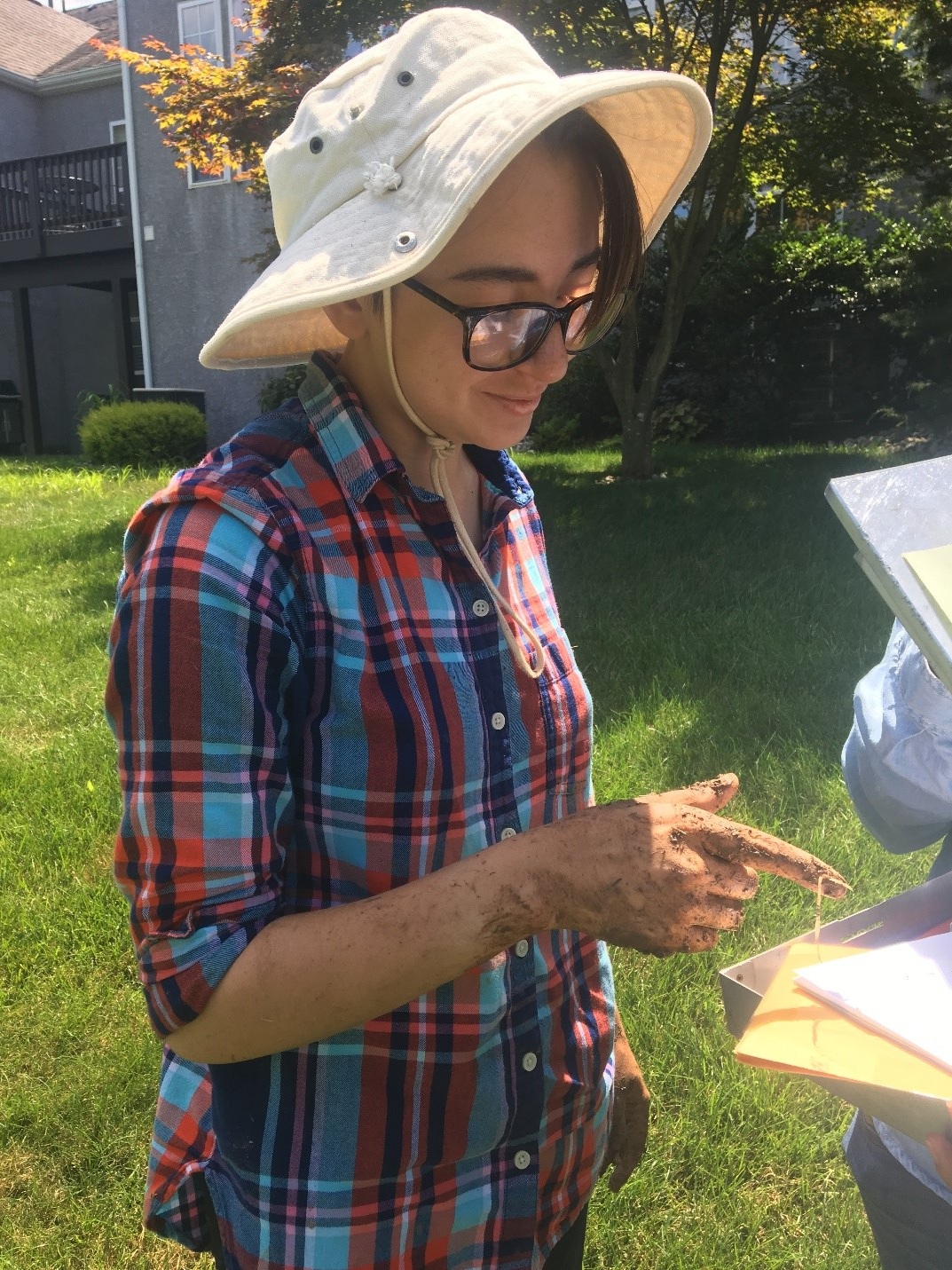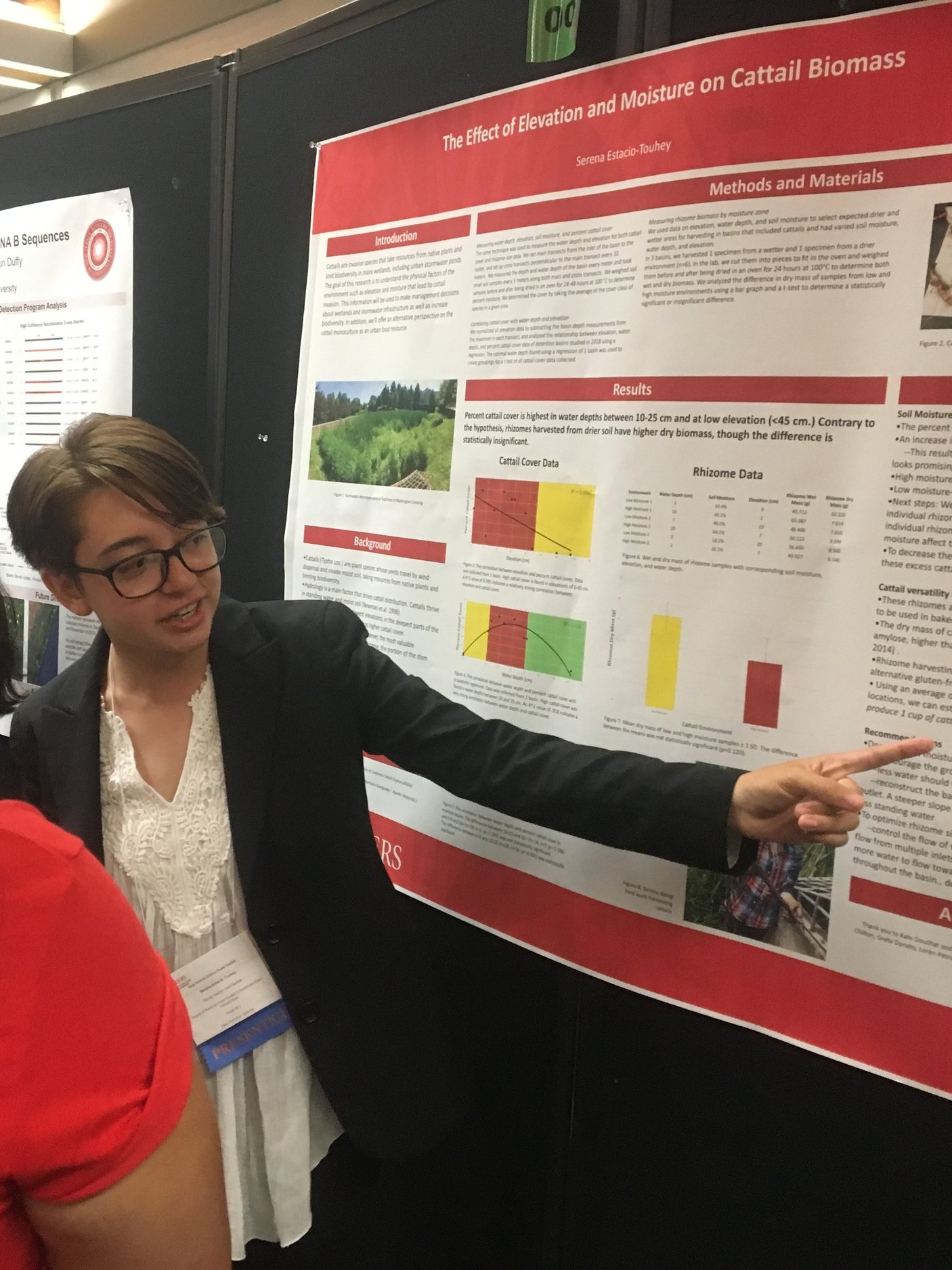Thanks for all the help!
During the past year, I have been lucky to work with a bunch of great undergraduate students. They have helped me with my work, doing jobs such as surveying wetlands, collecting plant and soil samples, and entering data. Having these helpers has been essential for me through their labor, company, and keeping me on task. The jobs I’ve thrown at them have never been easy, so I’m grateful for their hard work.
Many students ask me how to get involved with their first research experience. It’s not always obvious how to get your foot in the door, and it can be intimidating to approach a professor or older student. In this post, I’ll share the story of how six students got involved in research in my lab.
Answer an advertisement. Last summer, I got a grant to hire a field assistant. In March, I put out an application through the Ecology and Environmental Science Department email lists. I got a lot of good applicants. In the end, I hired two part-time helpers, Lyla and Jordan. My advisor and fellow graduate student were also looking for summer helpers, so I was able to refer two additional applicants on to get hired in other positions for the summer.
Experience Based Credits. After working with Lyla as a field assistant, she returned to the lab to continue part of the research for one credit. We worked together to design an experiment, and she carried it out. Lyla put together a research poster that she presented at a conference in April.
Be engaged in your classes. If there is a subject that you really like, don’t be shy about letting that show. I was in a lab group with undergraduates in a soils course. They were really enthusiastic and interested in the subject. Later, when I needed some help in the lab, I thought of them as possible assistants. I asked Kevin to help out in the lab in the fall to process soil samples. He got hands on experience with a number of new soil-analysis techniques and met a number of other scientists through his time in the lab. In the spring, he also helped put together the conference poster.
Volunteer in a lab. I gave a presentation in the Wetland Ecology course, and afterwards I was approached by a few students who were interested in my work. They wanted to get involved, and Swati followed up. She started working in the lab one morning a week doing data entry and working on an educational brochure for the public. After a semester, I was able to hire her as a field assistant for the following summer.
Apply for a research program. There are lots of programs around that will provide a formal introduction to research. This summer, Serena worked with me through the Aresty Summer Science program here at Rutgers. As part of a two-month program, she worked full time in the lab, lived on campus, and received additional mentoring. We did two days of field work per week, and three days in the lab. Toward the end of the program, Serena developed her own research question under the theme of our summer research, and produced a conference poster.
